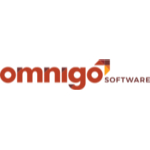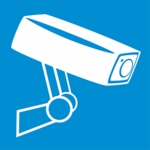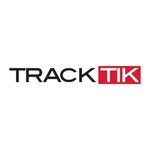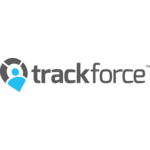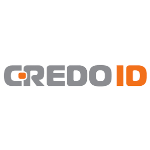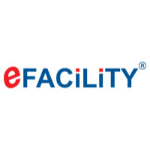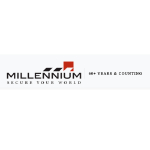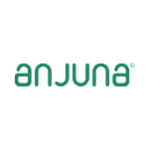TechnologyCounter provides genuine, unbiased real user reviews to help buyers make informed decisions. We may earn a referral fee when you purchase through our links, at no extra cost to you.
List of 15 Best Physical Security Software
Showing 1 - 15 of 31 productsOmnigo is a solution for efficient and streamlined operations. This innovative software revolutionizes the way organizations manage and protect their assets, with its intuitive and user-friendly interface. Say goodbye to complex and outdated systems,...Read Omnigo Reviews
Silvertrac is a leading software designed to simplify security management for businesses of all sizes. This powerful tool allows for efficient tracking of security operations, incident reporting, and communication between onsite security personnel an...Read Silvertrac Reviews
Envoy is a versatile is a software solution designed to simplify communication and streamline processes within any organization. With its user-friendly interface features, Envoy revolutionizes the way businesses manage visitors, deliveries, and more...Read Envoy Reviews
Camlytics is a surveillance and analytics solution for your business. With its advanced features interface, Camlytics offers an unmatched level of security and monitoring for all your cameras. Say goodbye to manual monitoring and hello to effortless...Read Camlytics Reviews
TrackTik is a solution for simplifying and optimizing your security operations. With advanced features design, TrackTik streamlines scheduling, reporting, and dispatching, helping security companies of all sizes run more efficiently and effectively...Read TrackTik Reviews
Lighthouse.io is a software that revolutionizes the way businesses manage their physical operations. From streamlining workflows to enhancing team communication, Lighthouse.io equips organizations with advanced technology to improve efficiency and pr...Read Lighthouse.io Reviews
XProtect Essential is a video management software designed to cater to the fundamental surveillance needs of small and medium-sized businesses. With its user-friendly interface and robust features, XProtect Essential is a cost-effective solution for...Read XProtect Essential Reviews
GuardTek is a dynamic security management software, designed to streamline operations and enhance productivity for security professionals. With a user-friendly interface features, GuardTek empowers businesses to efficiently manage security teams, mon...Read GuardTek Reviews
OfficerReports is a software designed to streamline and enhance the reporting process for law enforcement agencies. It offers efficient tools for recording, formatting, and sharing important information, allowing officers to focus on their crucial ta...Read OfficerReports Reviews
Patrol Points is a software designed to enhance patrol management. With its advanced features and user-friendly interface, Patrol Points streamlines patrol scheduling, tracking, and reporting for security personnel. Say goodbye to tedious paperwork a...Read Patrol Points Reviews
CredoID is an innovative software designed to streamline identification processes for businesses of all sizes. With its intuitive interface features, CredoID offers a seamless solution for verifying and managing the identity of employees, customers,...Read CredoID Reviews
eFACiLiTY Patrolis a ultimate solution for efficient facility management. With its advanced features, it streamlines operations, optimizes resources, and enhances user experience. Say goodbye to manual processes and hello to smart automation with eFA...Read eFACiLiTY Patrol Reviews
Millennium Ultra is a solution for all your software needs. With unparalleled features and impeccable functionality, this software is designed to cater to even the most complex tasks with ease. Say goodbye to limitations and hello to limitless possib...Read Millennium Ultra Reviews
Anjuna® offers an easy-to-use Confidential Computing software that can be seamlessly integrated without the need to restructure existing applications or containers, regardless of the environment they are used in (on-premises, hybrid, or multi-cloud...Read Anjuna Reviews
Resolver Incident is the solution designed to revolutionize incident management for businesses of all sizes. This powerful software streamlines the resolution process, minimizing downtime and maximizing efficiency. With its user-friendly interface fe...Read Resolver Incident Reviews
- What Is Physical Security Software?
- Top Reasons Why Businesses Need Physical Security Software?
- What Are the Top Key Features of Physical Security Software?
- What Are the Top Benefits of Physical Security Software?
- What Are the Steps to Choose the Right Physical Security Software?
- What Are the Types of Physical Security Software for Different Industries?
- What Are the Technology Trends for Best Physical Security Software?
- What Are the Deployment Options for Physical Security Software?
What Is Physical Security Software?
Physical security software is a type of software that secure physical assets in an organization. It provides monitoring and control of access to physical locations, assets, and resources such as doors and zones of an organization. It also helps to manage and track electronic access control, video surveillance, alarm reporting and activity tracking components of physical security.
The software allows for automated access control and monitoring of points of entry and restricted zones that are inaccessible to personnel who are not authorized. It ensures secure transmission of data in real-time and reports suspicious incidents and activities.
It also helps to reduce internal and external risks, prevents unauthorized accesses, and offers more control over access rights. Therefore, physical security software ensures the physical security of an organization by creating a secure environment and minimizing the chances of theft and other security breaches.
Top Reasons Why Businesses Need Physical Security Software?
1. Protects against malicious attacks such as Trojans, worms, viruses, and other malicious software.
2. Prevents unauthorized access to critical business data and systems.
3. Automates physical security practices through automated surveillance, access control, and more.
4. Enhances compliance with industry regulations and internal policies.
5. Enhances safety and security of employees and customers.
6. Protects against potential theft from external and internal sources.
7. Tracks and records access to sensitive information.
8. Provides real-time monitoring of critical access to sensitive data and systems.
9. The PSIM physical security information management software enables secure storage and backup of digital documents.
10. Facilitates the investigation and resolution of security breaches and threats.
11. Enhances surveillance and intrusion detection capabilities.
12. The best PSIM software improves the security of confidential and sensitive material and documents.
13. Keeps track of visitors and other personnel at entrances and exits.
14. Generates real-time alerts to notify of unauthorized access and movement within secured areas.
15. Proactively identifies security threats and improves security posture.
What Are the Top Key Features of Physical Security Software?
The top key features of physical security software are:
1. Access control: This feature enables users to control who is allowed into secure areas through a variety of methods such as keycards, biometric scanners, or even facial recognition.
2. Video surveillance: This feature allows users to monitor activity in real time through the use of CCTV cameras or other video-recording devices.
3. Intrusion detection: This type of security software can detect any attempted intrusions onto the premises and alert the necessary authorities.
4. Emergency Management: This feature of physical security management software allows users to set up pre-determined responses to specific security incidents, including evacuation orders, lockdowns, and other pertinent instructions.
5. Asset Management: This feature enables the tracking of physical assets, including IT equipment, supplies, and personnel within the premises.
6. Alarm Monitoring: This feature monitors alarms and commands a specific response when needed.
7. Perimeter Security: This feature of the best PSIM software involves setting up security measures around the perimeter of the premises, such as fences, gates, and motion sensors.
8. Security Auditing: This feature of PSIM physical security information management software automates a security audit of all systems, including networks, applications, and devices, to ensure compliance with security policies.
What Are the Top Benefits of Physical Security Software?
1. Protection against malicious software: Physical security software helps protect against malicious software, such as viruses, ransomware, and even malware.
2. Identify and prevent unauthorized access: Physical security management software can also identify and prevent unauthorized access to systems, networks, and data. This can help protect against hackers and data breaches.
3. Systematic authentication measures: Physical security information management software contains authentication measures that can provide systematic verification of user identities, preventing access by unauthorized personnel.
4. Enhancement of surveillance: The best PSIM software can help enhance surveillance, such as access control, as well as providing visual monitoring.
5. Improved data security: Through the use of physical security management software, organizations can improve data security, protecting confidential information from being stolen or accessed without permission.
6. Reduced risk of operational disruption: By keeping unauthorized personnel out of company premises and systems, organizations can reduce the risk of operational disruption due to malicious actors.
7. Improved compliance with regulations: The best physical security software can help organizations improve compliance with regulations, such as GDPR, protecting against fines and reputational damage.
What Are the Steps to Choose the Right Physical Security Software?
1. Assess your security needs: Before you start searching for physical security software, it is important to assess your security needs and determine what features you need in the software.
Consider the size and complexity of your physical security system, what type of access control you require, the environment the system will be situated in, and any other requirements you may have.
2. Research your options: Look into what physical security management software is available and determine which ones meet your needs. Consider the interface of the software, the reporting capabilities, any data security measures it includes, and how user-friendly it is. Be sure to read online reviews, contact existing customers, or consult with the software’s manufacturer to learn more.
3. Set a budget: Assess your financial capacity and willingness to allocate funds towards the acquisition of the best PSIM software. This approach will facilitate the process of selecting from a range of alternatives and guarantee the acquisition of the most economically efficient solution.
4. Decide on the best choice: After conducting thorough research and establishing a clear understanding of the available alternatives and financial constraints, one can proceed to select the best physical security software that aligns with their specific requirements.
It is advisable to thoroughly examine the terms and conditions as well as the technical support policies of the vendor before to proceeding.
5. Install and set up the software: Lastly, proceed with the installation of the PSIM physical security information management software and configure it according to your specific requirements. It is imperative to meticulously adhere to the provided instructions in order to guarantee accurate configuration of all components.
What Are the Types of Physical Security Software for Different Industries?
The selection of physical security software for various industries is contingent upon the specific risk factors and preferences of individual businesses or organizations.
These categories can encompass:
• Access Control Systems: The physical security management software facilitates the management of authorized access to certain areas. This could be achieved through the implementation of various security measures such as biometric scanners, code keypads, RFID cards, and similar technologies.
• Video Surveillance: The application of cameras for the purpose of identifying, monitoring, and documenting actions, including illegal behavior.
• Intrusion Detection Systems: The physical security information management software are employed for the purpose of identifying and preventing unauthorized entry into locations that are designated as restricted. Various types of warning systems can be employed, such as audio alarms, electronic sensors, and so forth.
• Perimeter Security: Physical barriers, such as walls, fences, gates, and similar structures, are implemented to safeguard against unwanted access and regulate the ingress and egress points.
• Asset Tracking: The best PSIM software employs computer software and hardware to oversee and record the utilization, location, and state of an asset or equipment. The following are the prevailing categories of the best physical security software that find widespread application across many sectors.
Each of these options offers varying levels of protection based on the specific needs of the organization, financial constraints, and operational context.
What Are the Technology Trends for Best Physical Security Software?
The paramount technological advances in the best physical security software encompass the subsequent aspects:
1. Cloud-Based Access Control Systems: Cloud-based access control systems enable the implementation of cloud-based access control mechanisms for pre-existing physical security equipment, thereby enhancing scalability and offering enhanced flexibility.
2. Digital Video Surveillance Systems: In recent years, significant advancements have been made in digital video surveillance systems, which now encompass a range of sophisticated capabilities like analytics, facial recognition, and advanced motion tracking, among others.
3. Automated Security Solutions: automatic physical security information management software provide the automatic deployment and identification of devices, such as motion sensors and alarms, hence enabling a more streamlined and comprehensive security solution.
4. Biometrics: The field of biometrics, encompassing technologies such as facial recognition, has experienced significant growth and emerged as a vital component within the realm of security. The rapid and precise identification capabilities of this technology render it indispensable in the realm of preventing unlawful entry into buildings or restricted locations.
5. Smartphone Integration: The integration of physical security systems with cellphones has been made possible by recent advancements in wireless technology. This integration enables many functionalities such as notifications, alarms, and remote system control.
What Are the Deployment Options for Physical Security Software?
Physical security software is commonly implemented in two ways: on-site deployment or cloud-based deployment.
1. The management of on-site installations is normally undertaken by the IT personnel of a business. The software is deployed on the local server or computer of the organization, and thereafter, users access the software through the local network.
This feature affords companies a heightened level of authority in safeguarding the confidentiality and integrity of stored information. However, it necessitates the allocation of supplementary hardware and resources for ongoing maintenance.
2. Cloud-based deployments are often overseen by external service providers and accessed through internet connectivity. Cloud-based deployments are generally characterized by their ease of setup and cost-effectiveness, since they eliminate the need for organizations to invest in and manage the requisite hardware and software components.
Additionally, these systems offer increased flexibility and scalability to enterprises in terms of software updates and resource utilization.
